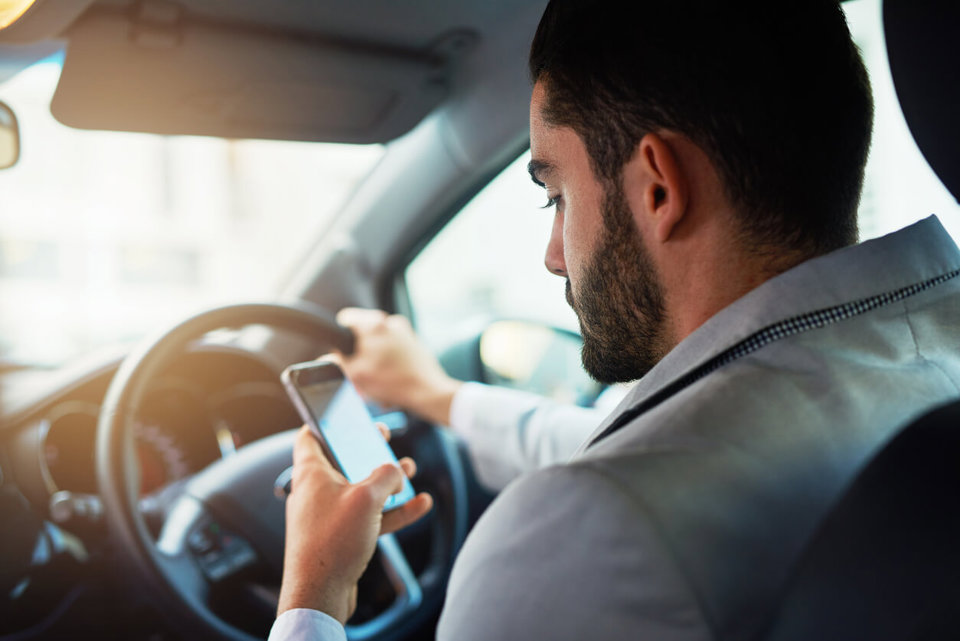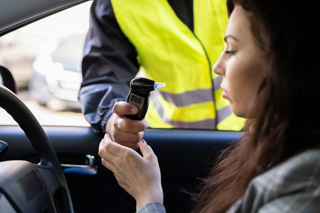New research from psychologists at the University of Sussex has found driving while talking on a hands-free phone can be just as distracting as talking on a hand-held mobile.
Brake is now renewing its calls for the government to look again at the laws around driving and mobile phone use.
The study, published in the Transportation Research Journal, shows that drivers who are engaged in conversations that spark their visual imagination are much less able to spot and react to potential hazards.
When the drivers involved in the study were asked about a subject that required them to visualise it, they focussed on a smaller area of the road ahead of them and failed to see hazards, even when they looked directly at them.
The researchers claim their evidence shows conversations may use more of the brain’s visual processing resources than previously understood. Having a conversation which requires a driver to use their visual imagination creates competition for the brain’s processing capacity that is also focussing on driving. This results in drivers missing road hazards that they might otherwise have spotted.
This is the latest study to look at the increased dangers involved with driving and mobile phone use. Previous research has estimated that up to 22% of crashes could be caused by some kind of distraction and drivers who perform a secondary task at the wheel, like using a mobile, are up to three times more likely to crash.
Also, the effect of talking on a phone while driving has already been shown to be worse than drinking certain amounts of alcohol. Driver reaction times are 30% slower while using a hands-free phone than driving with a blood alcohol level of 80mg alcohol per 100ml blood (the current limit in England and Wales), and nearly 50% slower than driving under normal conditions.
Lucy Amos, research advisor for Brake, said: “Distracted driving is a major cause behind road crashes; pulling the drivers’ attention away from the road and its potential hazards, potentially leading to fatal outcomes. This new study is only the latest of many which adds weight to extending the existing legislation to cover all mobile phone use within a vehicle, not just the use of hand-held mobile devices.
“We call on the government to take action and remove the clear and present danger of mobile phones on our roads.”
As well as disproving the popular misconception that using a mobile phone while driving is safe as long as it’s hands-free, the researchers from Sussex also say there are still differences between a hands-free conversation and a chatty passenger. A passenger will usually moderate the conversation when road hazards arise, whereas someone on the other end of a phone is oblivious to the other demands on the driver and so keeps talking.
Kevin Clinton, head of road safety at the Royal Society for the Prevention of Accidents (RoSPA), said: “We are not surprised at the findings of this study, as it confirms previous research that using any type of mobile phone while driving is distracting and dangerous and increases the risk of crashing.
“Although many people think that using a hands-free mobile phone while driving is safe, it is not. All the research clearly shows that using a hands-free phone does not significantly reduce the risks because the problems are caused mainly by the mental distraction and divided attention of using a phone at the same time as driving.
“RoSPA, which was instrumental in bringing into force the law banning the use of handheld mobile phones behind the wheel, would like to see that extended to hands-free for these reasons.
“Sadly, people continue to lose their lives on our roads in crashes caused by drivers who are distracted because they use a mobile phone. This can so easily be avoided by all drivers switching off their phones while driving, and only checking messages once they have stopped in a safe place.”
Does your company car policy permit the use of a hands-free phone while driving? Click here to vote in our poll.























Darren - 08/06/2016 11:43
I'm sorry but I really don't see how this can be true. I am not saying that hands free phones are not a distraction at all, but compared to driving one handed or with a phone jammed between your head and shoulder, I can't see how speaking into the air is a comparable distraction. I understand that this article is trying to suggest it's mental distraction, but I think the way the phone is used and how in control of the vehicle must be taken into account when comparing these two activities. Also I think it depends on how able a driver is at driving 'on auto', where the driver is competent enough to be able to drive safely without having to think about everything they're doing. I've seen drivers who clearly need to be more focused on the road than others. As an example to this, I have been driving a car daily for 25 years and I am able to 'auto pilot' very well. Whereas I have been riding a motorbike for only 3 years, and I am still having to think about every road junction, every shoulder check etc. Same roads, same person different level of competency.